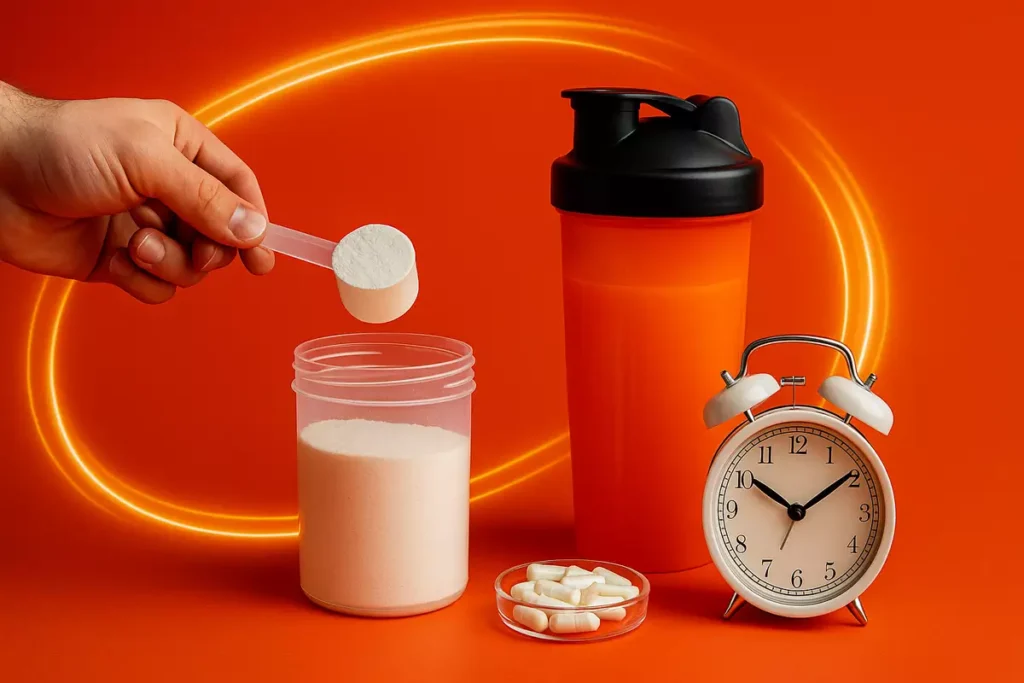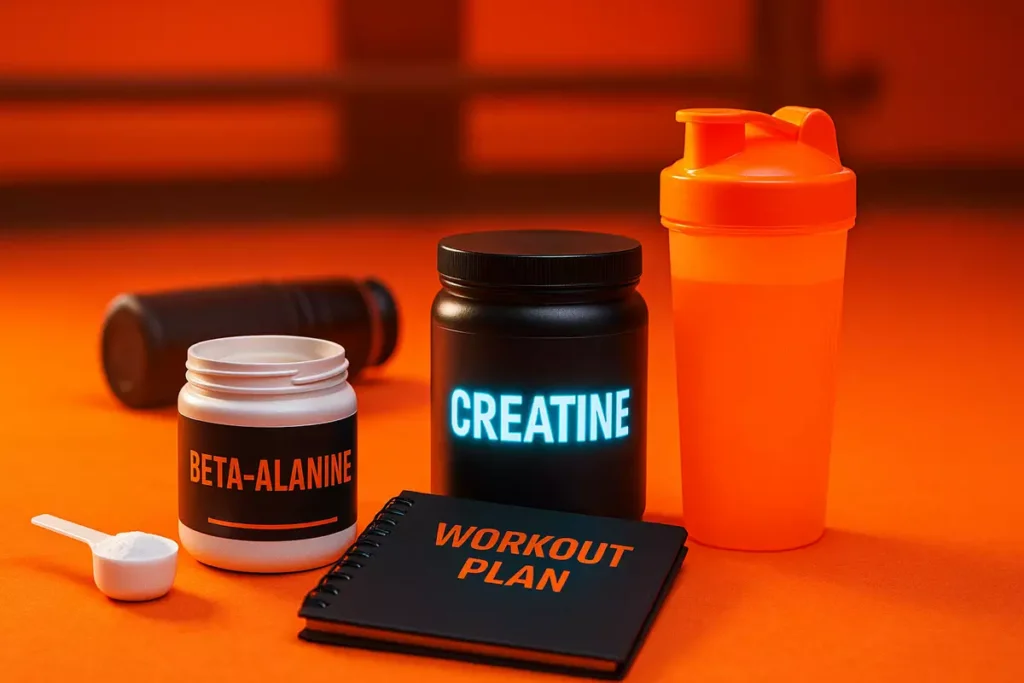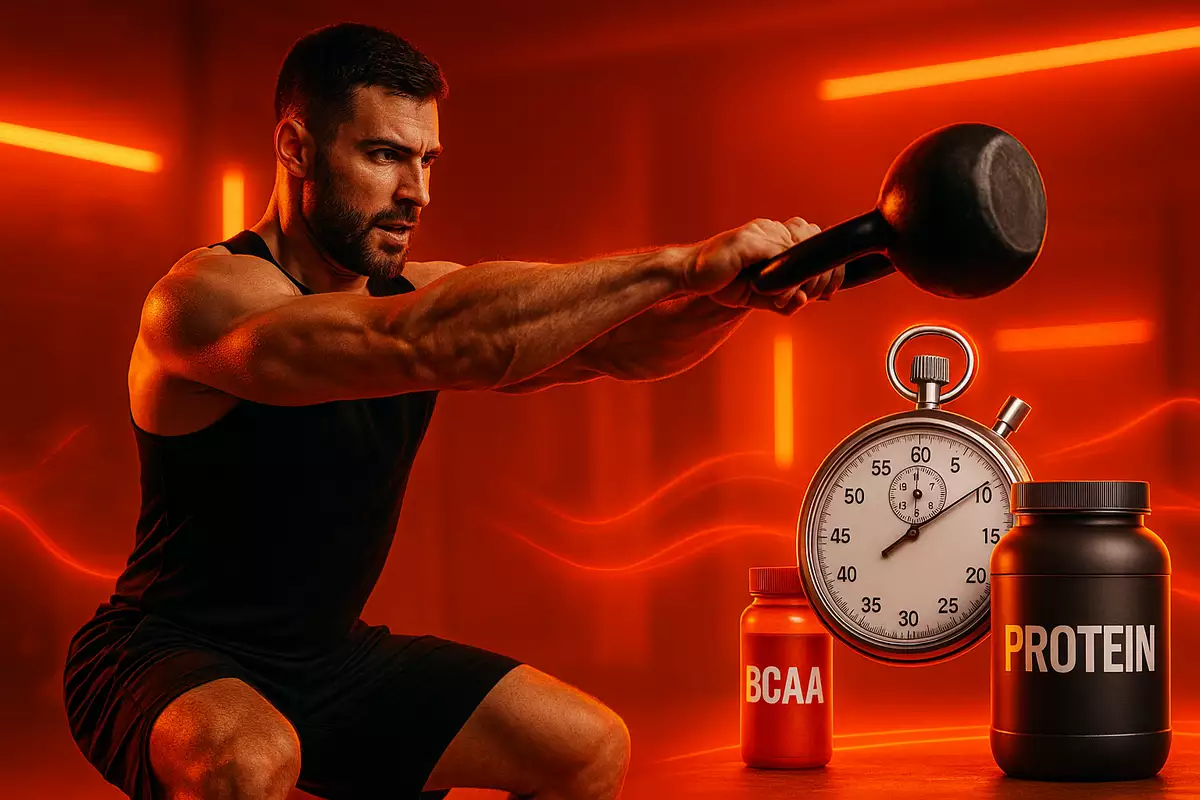Struggling to push past muscle burn during intense workouts?
Beta-alanine might be the missing link. Backed by science and proven in real training sessions, this powerhouse supplement helps you fight fatigue, last longer, and unlock new performance levels.
Here’s how it works—and whether you should add it to your stack.
Table of contents
Quick Answer
If you’ve ever wondered whether beta-alanine actually improves workout performance, let me save you some time: Yes, it can—especially for high-intensity training.
As a fitness trainer with over 10 years in bodybuilding and 6 years of coaching, I’ve used beta-alanine personally and seen its effects on many clients.
It’s not magic, but when used correctly, it can help you push harder, last longer, and squeeze out those extra reps that make a difference.
How Beta-Alanine Works

Beta-alanine is a naturally occurring amino acid. When you take it, your body increases carnosine production in your muscles.
Carnosine’s job? Buffering acid build-up that causes the familiar “burn” during intense sets or sprints. With more carnosine, your muscles can fight fatigue longer.
That means you can train at a higher intensity for longer periods.
I remember when I first started supplementing—I noticed during leg workouts that the muscle burn kicked in later than usual. That was my first real hint that this stuff works.
For those interested in natural ways to increase beta-alanine intake, check out our guide on beta-alanine food sources.
Performance Benefits Backed by Research
Science supports what I experienced:
- Improved endurance: Athletes can sustain high-intensity exercise for longer before hitting failure.
- Better short-burst performance: Perfect for HIIT, CrossFit, or sprinting.
- Potential strength gains: While not a direct muscle-builder, lasting longer in tough sets leads to more quality reps and better overall progress.
One of my clients, Lucas, a CrossFit competitor, used beta-alanine for six weeks.
He went from barely finishing his timed WODs to setting personal bests—just by delaying that crushing fatigue.
For more on how beta-alanine enhances explosive performance, see our in-depth guide.
Best Dosage and Timing

From my experience and research:
- Optimal dose: 3.2–6.4 g daily
- Timing: Split the dose (morning and pre-workout) to reduce tingling
- Consistency: Daily use for 4+ weeks is key since it works by building up carnosine—not as a quick pre-workout hit
I personally use 3.2–4 g/day and noticed tangible improvements after about three weeks.
For guidance on how long you should stay on beta-alanine, check our cycle duration guide.
Possible Side Effects
The main side effect is tingling (paresthesia)—a harmless sensation you’ll feel on your skin shortly after taking it.
At first, I felt it strongly in my face and hands. Splitting the dose helped a lot. None of my clients have experienced anything more serious than mild tingles.
You can read more details in our full beta-alanine side effects guide.
Who Should Take Beta-Alanine?
Based on my own use and coaching experience:
- Great for: High-intensity lifters, sprinters, CrossFit athletes, cyclists, and anyone battling muscle burn in longer sets or intervals
- Less useful for: Low-intensity or short-duration training where acid buildup isn’t a limiting factor
For example, Sophia, an amateur cyclist I trained, struggled with long hill climbs. After adding beta-alanine, she powered through those climbs with much less burn and better endurance.
If you’re vegan or vegetarian and wondering if this supplement suits you, check out our guide on beta-alanine for vegans.
Practical Tips for Using Beta-Alanine

- Stack it with creatine or a pre-workout—just watch for double-dosing. Learn more in our stacking guide.
- Take it daily, even on rest days, to maintain carnosine levels.
- Pair it with progressive training—it’s not a shortcut but a performance enhancer when you’re pushing limits.
I often combine it with creatine and a moderate pre-workout. This combo gives me a solid boost in both strength and stamina, especially during circuit training.
If you’re considering adding caffeine, see our guide on the caffeine and beta-alanine stack.
Conclusion
Beta-alanine isn’t essential for every athlete.
But if your training involves intense sets, sprints, or endurance challenges, it can make a noticeable difference.
In my own bodybuilding and coaching journey, it helped me push past plateaus. I’ve seen clients—from soccer players to CrossFit competitors—unlock new performance levels with consistent use.
If you’re looking to train harder, delay fatigue, and get more out of every workout, beta-alanine is worth considering.



Leave a Reply